Claudio Gutierrez
Educational Tools for Mapuzugun
May 19, 2022



Abstract:Mapuzugun is the language of the Mapuche people. Due to political and historical reasons, its number of speakers has decreased and the language has been excluded from the educational system in Chile and Argentina. For this reason, it is very important to support the revitalization of the Mapuzugun in all spaces and media of society. In this work we present a tool towards supporting educational activities of Mapuzugun, tailored to the characteristics of the language. The tool consists of three parts: design and development of an orthography detector and converter; a morphological analyzer; and an informal translator. We also present a case study with Mapuzugun students showing promising results. Short Abstract in Mapuzuzgun: T\"ufachi k\"uzaw pegelfi ki\~ne zugun k\"uzawpey\"um kelluaetew pu mapuzugun chillkatufe kimal kizu ta\~ni zugun.
Querying in the Age of Graph Databases and Knowledge Graphs
Jun 25, 2021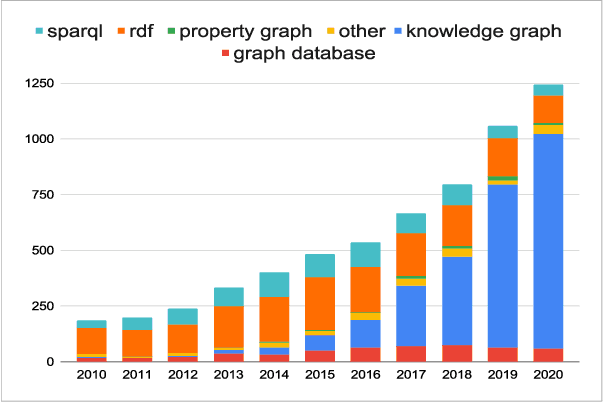
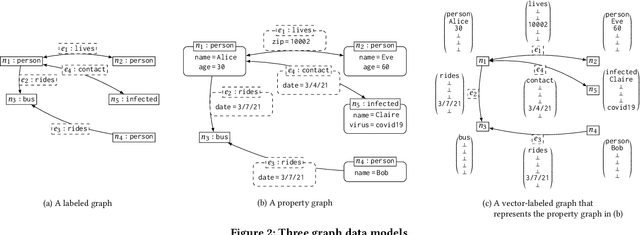
Abstract:Graphs have become the best way we know of representing knowledge. The computing community has investigated and developed the support for managing graphs by means of digital technology. Graph databases and knowledge graphs surface as the most successful solutions to this program. The goal of this document is to provide a conceptual map of the data management tasks underlying these developments, paying particular attention to data models and query languages for graphs.
Knowledge Graphs
Mar 28, 2020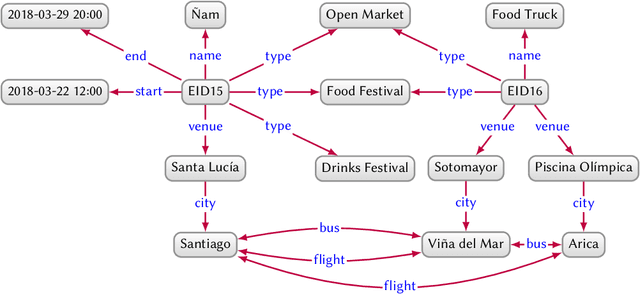
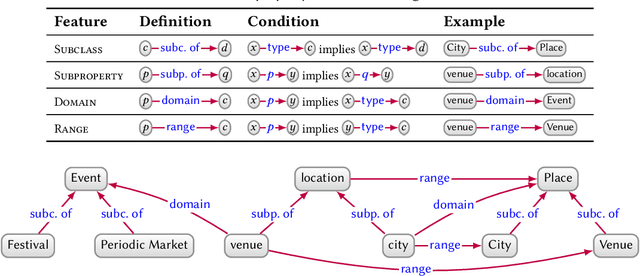
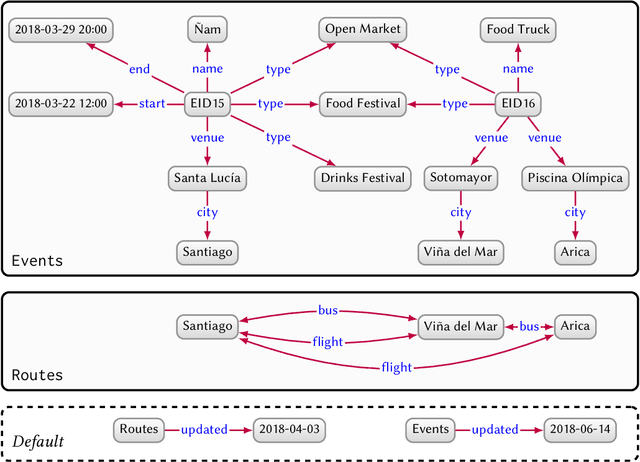
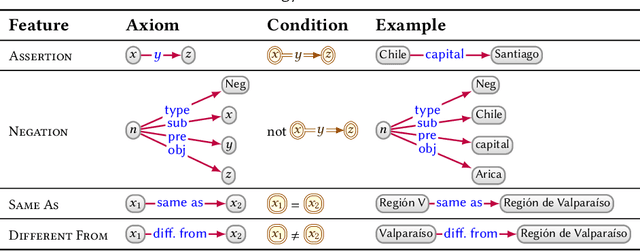
Abstract:In this paper we provide a comprehensive introduction to knowledge graphs, which have recently garnered significant attention from both industry and academia in scenarios that require exploiting diverse, dynamic, large-scale collections of data. After a general introduction, we motivate and contrast various graph-based data models and query languages that are used for knowledge graphs. We discuss the roles of schema, identity, and context in knowledge graphs. We explain how knowledge can be represented and extracted using a combination of deductive and inductive techniques. We summarise methods for the creation, enrichment, quality assessment, refinement, and publication of knowledge graphs. We provide an overview of prominent open knowledge graphs and enterprise knowledge graphs, their applications, and how they use the aforementioned techniques. We conclude with high-level future research directions for knowledge graphs.
Semantic Navigation on the Web of Data: Specification of Routes, Web Fragments and Actions
Nov 18, 2011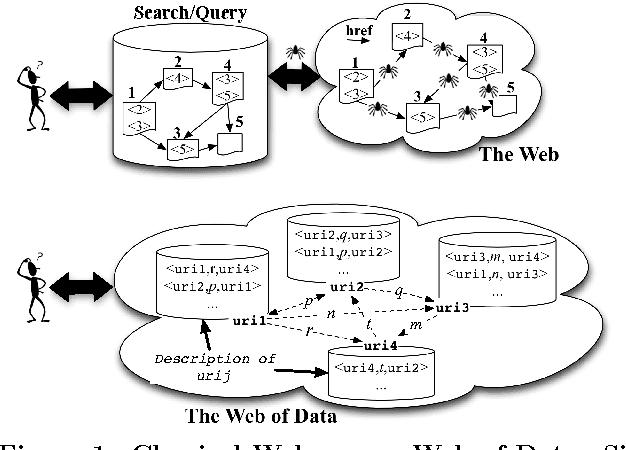

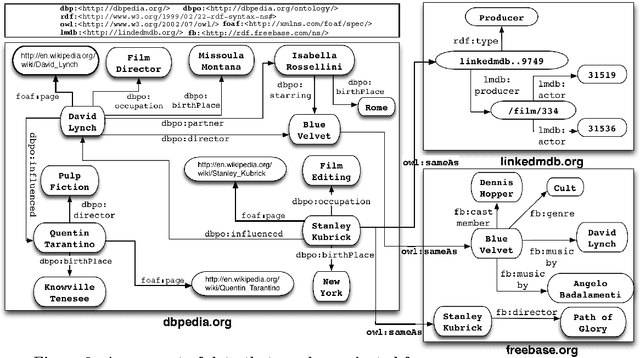
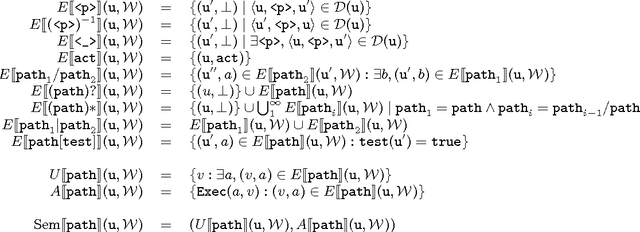
Abstract:The massive semantic data sources linked in the Web of Data give new meaning to old features like navigation; introduce new challenges like semantic specification of Web fragments; and make it possible to specify actions relying on semantic data. In this paper we introduce a declarative language to face these challenges. Based on navigational features, it is designed to specify fragments of the Web of Data and actions to be performed based on these data. We implement it in a centralized fashion, and show its power and performance. Finally, we explore the same ideas in a distributed setting, showing their feasibility, potentialities and challenges.
 Add to Chrome
Add to Chrome Add to Firefox
Add to Firefox Add to Edge
Add to Edge